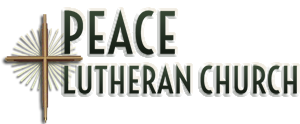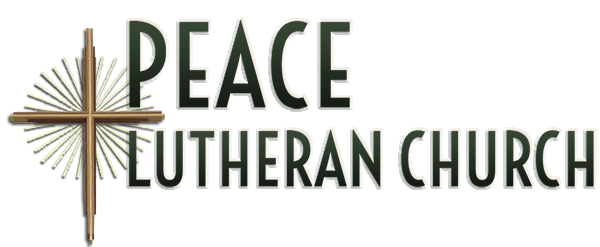In this healing, Jesus changes the boundaries
Today’s text: Mark 1:21-28
When we talk about personal relationships, one of the characteristics we consider are the boundaries we set. Boundaries help to define who we are; healthy boundaries help us to maintain a strong sense of ourselves, while allowing us to be in mutual relationships with others. Healthy boundaries are flexible enough to accommodate differences in other people while maintaining our own sense of identity. If our boundaries are too rigid, we may find it difficult to connect with other people; if we use our boundaries like a battering ram, we may end up trying to force others to meet our expectations or destroying their own sense of who they are. And if our own boundaries are uncertain or unclear, we may find ourselves losing a sense of who we are because we are overpowered by other people.
When we read stories about Jesus “driving out demons,” it’s been a popular strategy to assume that Jesus was curing someone of a mental illness that was misunderstood as demon possession.
But I think there are good reasons to see at least some of these healings in a different light. In the healing described in this morning’s gospel, for instance, there are some clues that suggest that there is more happening that the curing of an unrecognized mental illness in a single human being. There are clues that suggest that what Jesus is really doing is correcting some inappropriate boundaries and healing the relationship between an individual and his community.
One of the biggest clues is the reaction of the crowd:
“What is this? A new teaching — with authority!”
A new teaching?
A new understanding? A new way of thinking?
We aren’t given a description of the teaching, only the result of the teaching: an “unclean spirit” is driven out by one identified as “the Holy One of God,” a designation traditionally used for the priests, whose job it was to identify unclean persons and expel them from the assembly to protect them from contamination. But the result of Jesus’ action is not the expulsion of the individual, but the restoration of him to his community.
A new reading
So let me suggest a different perspective on what may have happened that day.
Think about what usually happens when an individual does not conform to the expectations or the norms of a community. With certain kinds of differences, we may simply look on with amused tolerance and define the person as eccentric; but others may be more threatening to the desired pattern or stability of the community, and the differences seen not simply as eccentric but downright dangerous to maintaining the status quo.
When that happens, the offending individual is either pressured to conform, with their personal boundaries assaulted by the collective will of the community to force them to change, or else they are shunned and then face being persecuted, ignored, isolated or banished.
The only possible way such an individual could be “healed” or restored to relationship within their community, would be if the community could learn to view that person in a new way, to have their antagonism changed into acceptance, to understand that their differences are not a threat to community, but add a richness that is only possible with diversity.
Changing the collective mind of a community would take a teaching done with powerful authority; exactly what the writer of the gospel of Mark describes in this account of healing. The Greek word the gospel writer uses to describe Jesus’ authority is one that means “extraordinary power.”
What Jesus is described as doing with “powerful authority” is the casting out of a collective “evil spirit” that has inflicted suffering on the one who has been the target of a campaign to conform to community expectations- or else remain ostracized and alone.
To be restored into community is a healing of massive proportions; and it is a healing not simply of the individual, but of the entire community.
Jesus is notorious for his acceptance and embracing of people who were traditionally seen as unclean and unworthy. All of the gospels share stories of his chosen encounters with women, tax collectors, Samaritans, people with ailments and disabilities that traditional, orthodox religion defined as unclean sinners, living under the shadow of God’s curse. Jesus’ embracing of those traditionally seen as unclean brings about not simply individual healings, but the restoration of community.
New boundaries for us, today
In our contemporary world, we have people who are demonized just as surely as the ones Jesus encountered in his time; and there is every reason to believe that Jesus would seek healing and restoration to community for them as well.
Consider the way our society treats people who have served time in prison; in spite of the fact that they have completed the punishment were given, they usually find it difficult or impossible to gain employment or housing. They face levels of discrimination that seriously impair their ability to rebuild their lives.
Or people in the LGBTQ community whose gender identity doesn’t match what cultural norms consider to be “normal” or acceptable and who often face not just discrimination, but active acts of hostility and violence that are often a reaction of fear.
Jesus’ entire life and ministry is a demonstration of a strong and powerful love for all of God’s people that acts as an antidote to the fears that come when we believe the boundaries of our personal identities are being challenged.
It’s a love that assures us that we are beloved children of God, with all of our quirks and differences and idiosyncrasies; a love that seeks to give us such a confidence in our own identity as beloved children of God that we are able to embrace the differences of others without fear, without demanding that they conform to our expectations and norms to be accepted.
THAT kind of love drives away the “evil spirits” of discrimination and fear and invites us into community that is strengthened by the beauty of diversity and unburdened by the disruptions of rivalry and fear.
So come this day, to the table of the “Holy One of God” who invites us to a place of acceptance and healing, where everyone is welcome, and where community is restored by the powerful authority of the one who invites us to share in the new covenant in his blood, shed for us and for ALL people for the forgiveness of sin. Thanks be to God!
Amen.


